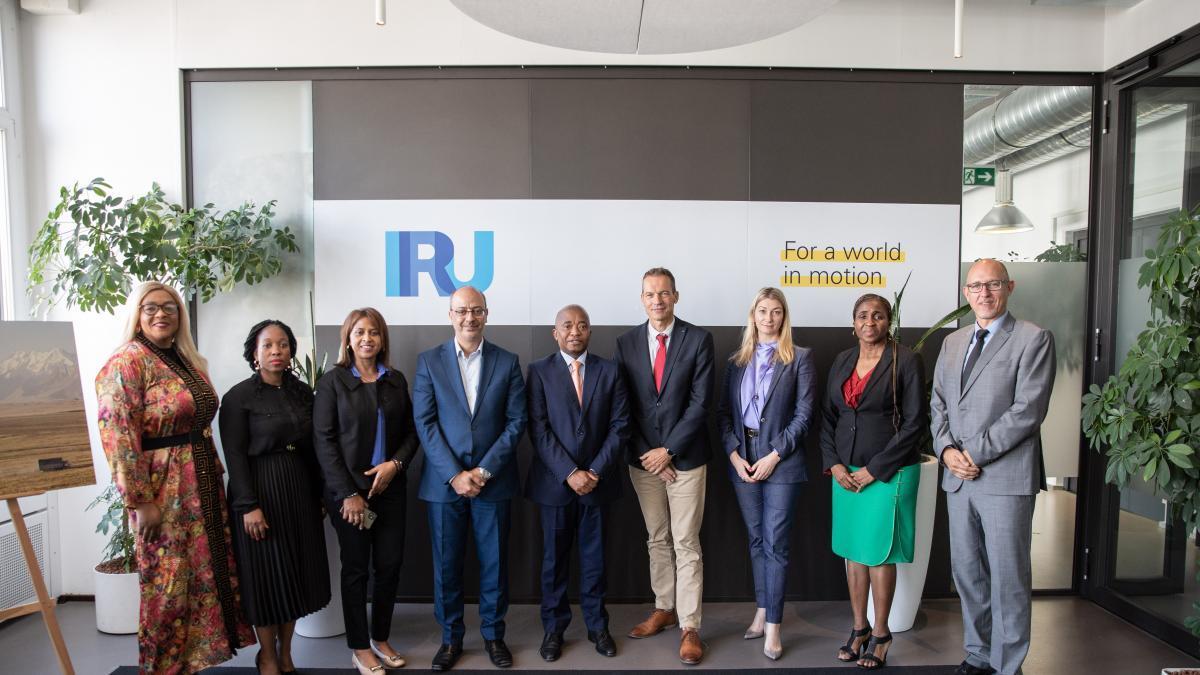Africa-Press – Eswatini. Government has stepped in amid the growing tension between shuttle services, interstate kombis and South African taxi owners.
In an effort to diffuse the tension and protect commuters, the ministry of public works and transport has written to the South African Cross Border Road Transportation Agency (CBRTA), appealing for its intervention.
This after the ministry cited that there were criminal elements taking place whereby local shuttles and seven-seater vehicles were being blocked while on transit by SA taxi owners, who demand customers and also fine them.
The attacks on the local vehicles have been ongoing for the past couple of weeks in the neighbouring country.
Government’s intervention also comes as the SA taxi owners said they would not back off despite that Eswatini Road Transportation Board met with the Eswatini Interstate Transport Association (EITA) in a move aimed at brokering peace.
The EITA was said to be behind the attacks, which the public works ministry strongly condemned, saying they could not sell out their own over something manageable.
The EITA, however, denied influencing their South Africa counterparts.
Director of the Road Transportation Department, Mandla Ntshalintshli, said he wrote to the CBRTA appealing for their intervention and also asked if in their space, they allowed the patrols to stop vehicles and demand documentation.
Ntshalintshli said no association had the power to stop vehicles and ask for permits, except for the people authorised by law.
“A person cannot stop vehicles and demand documents. If a person can stop a vehicle and demand money, it is wrong. That is why we wrote to SA to ask if they are aware and if they allow it.
If not, we expect SA to assist us in dealing with these people,” said the director.
He said if this happened in the country, inspectors and police would have to uproot that problem.
“We do not expect harassment of people moving between one point to another for whatever reason,” he said.
Ntshalintshali also wondered where the funds demanded as fines were taken because the people behind the acts were not government officials, saying when government issues a fine, the money becomes part of the consolidated fund.
He said this matter must be sorted within the confines of the law.
According to the director, they always advised taxi owners to look after their business and when they suspect a vehicle to be taking their business, they should let law enforcers know and penalise those people.
He further disclosed that he asked the shuttle service providers and the interstate association to work together but now that there were criminal elements, they had to intervene.
The director said they were present when the shuttle services and interstate operators had their meeting adding that when allegations that EITA was influencing KaNgwane Taxi Association, he called the chairman and told him to disassociate himself with such.
“You cannot sell out Emaswati over something manageable.
There is nothing stopping them from getting into the same business and taking passengers to the airport,” he said.
He added that an operation of transporting people to the airport was not illegal, saying the demand was there, and it was their duty to safeguard how it happened.
Ntshalintshali explained that they had a joint route management and in December, they were in Pretoria trying to mediate on a matter between EITA and KaNgwane Taxi Association over their loading arrangement.
He said EITA complained of not getting 50/50 loads from its SA counterparts and subsequently, there was the joint route management meeting where a mediator was appointed.
However, he said by December, there was no report, so they decided as government to take it up.
“While we were talking about them revising their agreement, a new scuffle ensued.
We also spoke about it, and it was explained that the airport demand does not come from SA, but from Eswatini,” he said.
He said KaNgwane Taxi Association could not then want to take people going to OR Tambo and they must not be the ones giving permission for people to operate.
The SA association, according to the director, thought the shuttles to the airport were always full, which was not true as was witnessed when they wanted passengers from TransMagnific.
“In this incident, there were about 10 passengers, but when the commotion started, others got alternative transport and there were eventually five.
The operations are not the same,” he explained.
He said they would need to engage the interstate operators again in collaboration with the tourism ministry to explain the difference between the operations.
“People going to airports have bookings of connecting to flights, and it is not the same market as people going to the bus rank, and they need another class of vehicle as they are competing with flights,” Ntshalintshali said.
Further, he said shuttle services provided their customers with class as they provided snacks and air-conditioned vehicles and in turn, customers paid for that convenience.
The director went on to state that if their efforts to stop the conflict were effective, it would have to be escalated and dealt with by the ministers of both countries.
For More News And Analysis About Eswatini Follow Africa-Press







